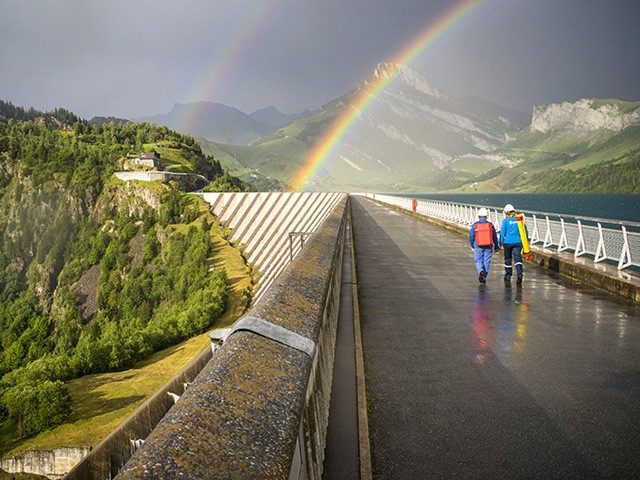-

Optimization of water use
More detailsEDF controls its water footprint and optimizes its water uses, in terms of both quantity and quality, on its sites and throughout its value chain.
-

Resilience of host territories
More detailsEDF contributes to the resilience of its host territories through transparent and responsible water and facilities management, and through positive contributions to the overall water cycle.
-

Water governance and sustainable water management
More detailsEDF actively participates in water governance at watershed level, seeking for balanced and sustainable water management.
-

Skills, partners and employees awareness
More detailsEDF develops skills, expertise and partnerships in line with its ambitions regarding water, and raises awareness among its employees about these issues.
Optimization of water use
EDF is committed to controlling its water footprint and optimizing its water uses, in both quantity and quality, on its sites and throughout its value chain.
The EDF Group, a major water user, but a smaller consumer
EDF is deploying a water-saving approach in all its entities, according to their specific challenges, which includes better accounting for water flows, seeking to improve the efficiency of their uses (reduction of leaks, process optimization, recycling and reuse, rainwater harvest).
-
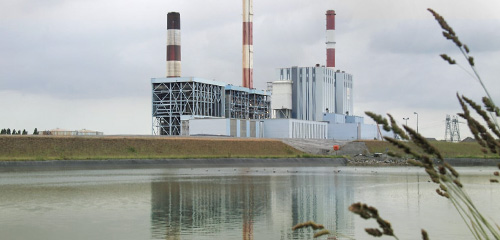
97% of the freshwater withdrawn by EDF in France is directly returned downstream.
-
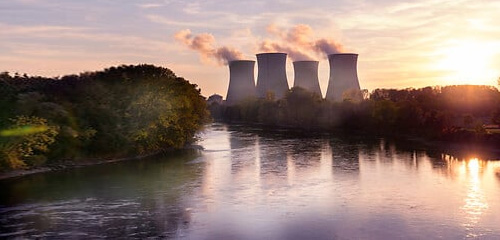
In France, the energy sector is the third largest consumer of freshwater (12%) after agriculture (58%) and drinking water (26%).
-
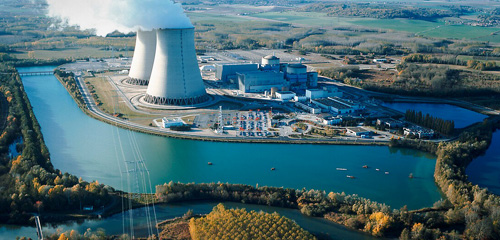 EDF is deploying a water-saving approach in all its entities, according to their specific challenges, which includes better accounting for water flows, seeking to improve the efficiency of their uses (reduction of leaks, process optimization, recycling and reuse, rainwater harvest…).
EDF is deploying a water-saving approach in all its entities, according to their specific challenges, which includes better accounting for water flows, seeking to improve the efficiency of their uses (reduction of leaks, process optimization, recycling and reuse, rainwater harvest…). -
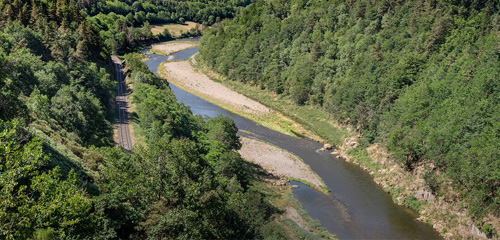 EDF aims to limit its impact on the quality of aquatic environments:
EDF aims to limit its impact on the quality of aquatic environments:- Reducing thermal and chemical discharges from sites (continuous improvement approach)
- Maintaining minimum flow rates, improving ecological continuity and lock operations, etc.
- Monitoring environments and improving understanding of impacts
-
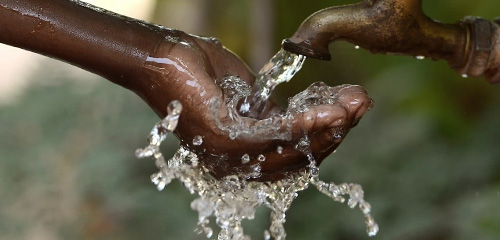 EDF is committed to ensuring access to clean water and sanitation for its employees at all its existing and construction sites, both in France and internationally.
EDF is committed to ensuring access to clean water and sanitation for its employees at all its existing and construction sites, both in France and internationally.
A few examples
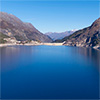
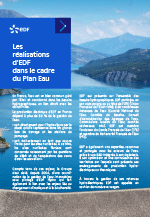 This brochure summarizes the initiatives on water taken by the EDF Group, a year after the launch of the Government’s ‘Water Plan’.
This brochure summarizes the initiatives on water taken by the EDF Group, a year after the launch of the Government’s ‘Water Plan’.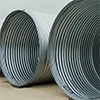
Framatome, a subsidiary of the EDF group, has committed to reducing its consumption of both groundwater and surface water, across all its industrial sites. At the Montbard site, the installation in 2023 of seven underground rainwater storage tanks provides a reserve of 2,900 m³, which allows for 3 months of operation without pumping surface water. During the first 10 months of operation, 85% of the water needs were met by this installation.
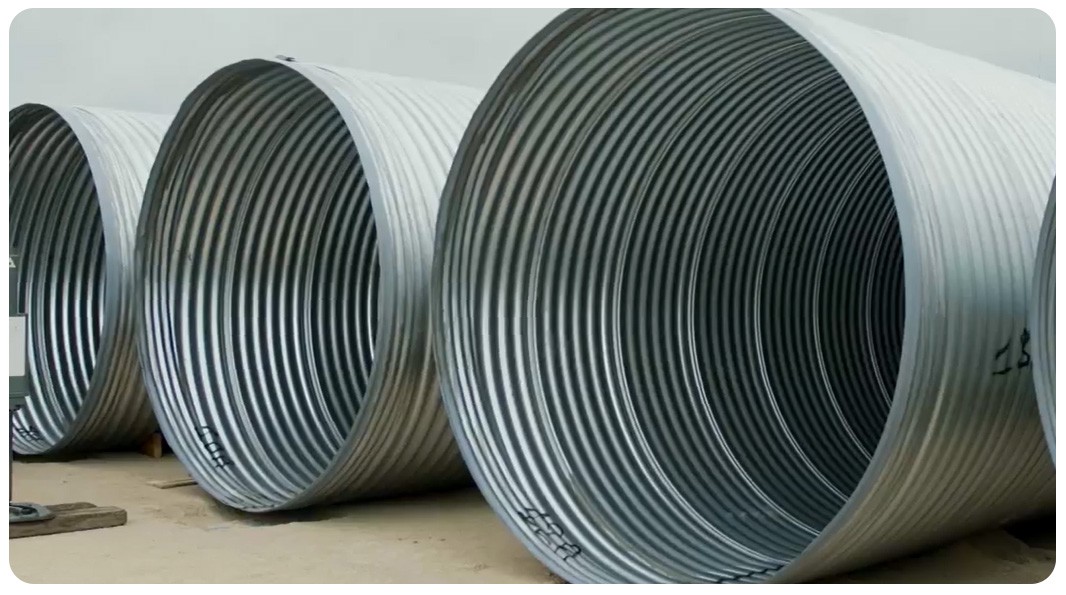
Further information
-
Report on EDF R&D's Thermo-Hydrobiology 2016-2020 program (nouvelle fenêtre)
Exclusively in French
Resilience of host territories
EDF contributes to the resilience of its host territories through transparent and responsible water and facilities management, and through positive contributions to the overall water cycle.
-
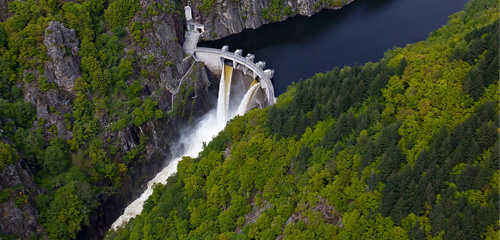
EDF operates its hydroelectric facilities in a transparent and responsible manner:
- Agreements for low-water support missions.
- Project studies of co-development projects for multi-purpose facilities.
- Assessment of the contribution to flood control (in agreement with the local authorities, and within the limits of its capacities and its other obligations (safety, electricity network)).
-
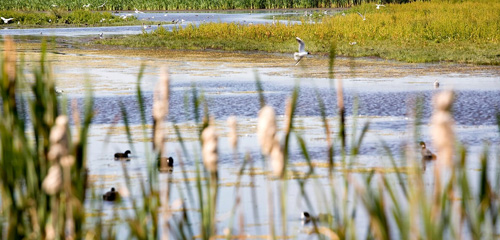
EDF promotes positive contributions to the water cycle:
- Preferably with Nature-based Solutions (wetlands restoration, forests preservation, etc.).
- Seeking for combined water / biodiversity / carbon effects.
- In a collective approach and by developing pilot projects.
-
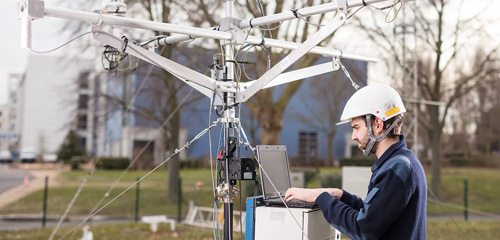 EDF shares its expertise in water management, particularly hydrological monitoring and forecasting.
EDF shares its expertise in water management, particularly hydrological monitoring and forecasting.
EDF, a major actor of the freshwater management in France
-
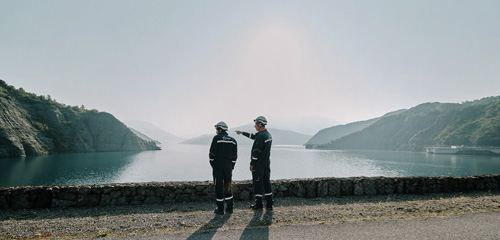
EDF is a major manager of freshwater in France with around 6 billion m³ of water in its reservoirs.
-
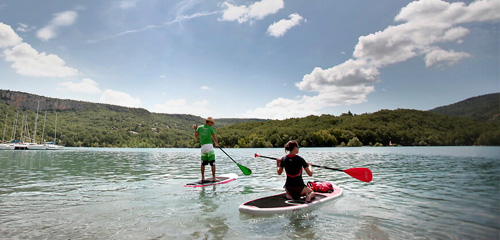
2/3 of the hydroelectric facilities managed by EDF in France provide missions that are complementary to energy production, such as low-water support, tourism development, etc.
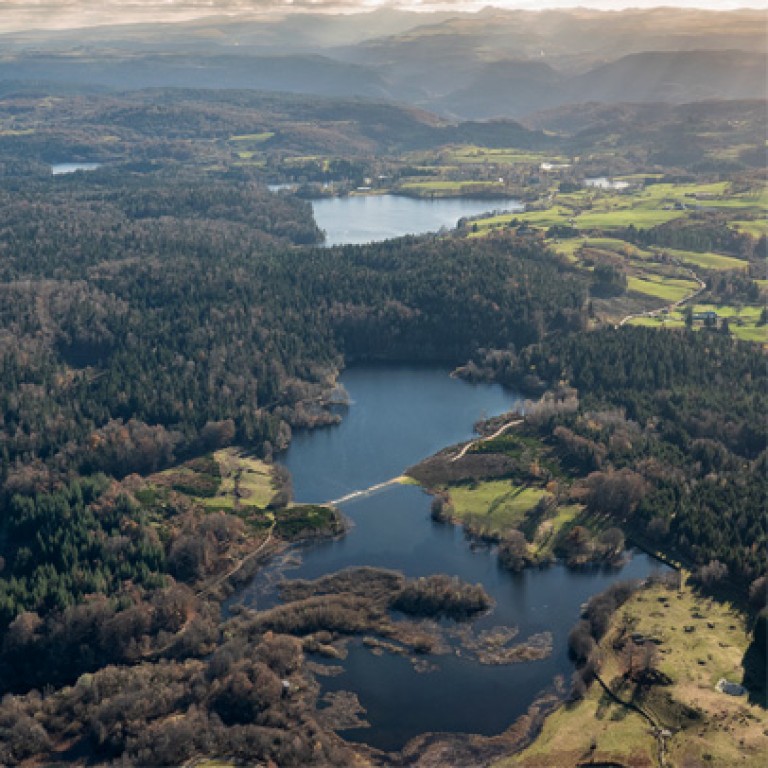
Promotion of Nature-Based Solutions
Nature-based solutions can be a useful way to regulate water cycle, mitigate climate change and preserve biodiversity.
The ecological engineering project at the Tact reservoir (located in the Cantal region, France) aims to improve water quality in the reservoir and downstream. The new vegetated embankment slows down the water flow in one part of the reservoir : it enhances sediment decantation and improves water quality with phyto-epuration. This project has been labeled Solution Fondée sur la Nature (SFN) by the Adour-Garonne Water Agency and selected by the Water Plan as one of its 14 emblematic SFN projects.
Further information
Water governance and balanced management
EDF actively participate in water governance at watershed level, seeking balanced and sustainable water management.
-
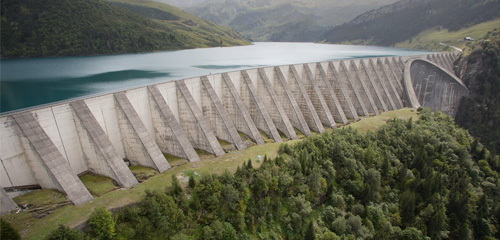 EDF supports a policy built around 3 principles:
EDF supports a policy built around 3 principles:- Water is a ‘common good’ [1] that no one owns.
- Effective governance is organized at watershed or valley levels.
- Public authorities, guardians of the public interest and final arbiters of water allocation (in particular to maintain the water-energy balance).
-
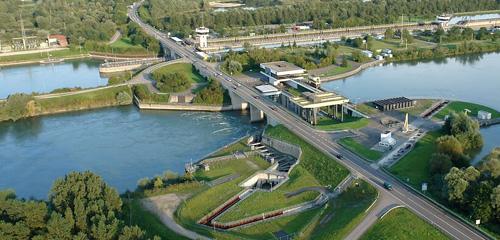 EDF participates at various levels in the water governance, from the local to the national and cross-border levels, in relation to the watercourses on which it carries energy business.
EDF participates at various levels in the water governance, from the local to the national and cross-border levels, in relation to the watercourses on which it carries energy business. -
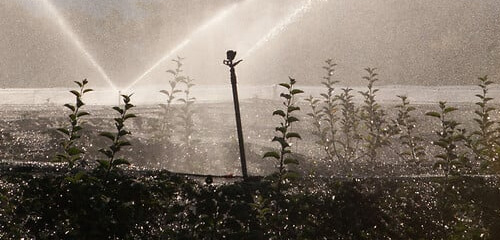 The EDF Group is attentive to social and cultural evolutions surrounding the management of water resources.
The EDF Group is attentive to social and cultural evolutions surrounding the management of water resources.
[1] ] What is the notion of ‘common good’? In France, the Environment Code designates water as ‘the nation's common heritage’ (article L210-1); at European level, the Water Framework Directive (WFD) states: ‘Water is not a commodity like any other but a heritage that must be protected, defended and treated as such’. (WD 2000/60/EC).
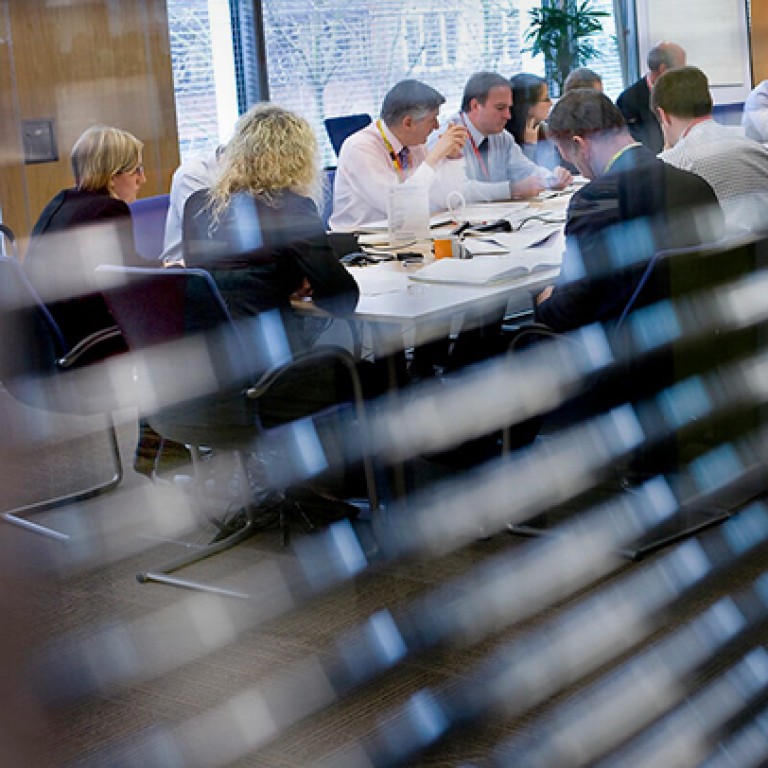
A vital issue, a common good
EDF does not decide or regulate the uses of water. They are the subject to consultation at watershed level, between the stakeholders under the supervision of the local authorities.
EDF participates in many water regulation bodies in France (Comité National de l’Eau, Comités de Bassins, Conseil d’Administration des Agences de l’eau, Commissions Locales de l’Eau, comités sécheresse, etc.).
Skills, partners and employees awareness
EDF develops skills, know-how and partnerships in line with its ambitions for water and raises awareness of these issues among its employees.
-
 EDF maintains and develops its scientific and technical skills, including its know-how in water management, and develops its scientific and technical partnerships.
EDF maintains and develops its scientific and technical skills, including its know-how in water management, and develops its scientific and technical partnerships. -
 EDF raises awareness of water related issues among its executives, managers and employees.
EDF raises awareness of water related issues among its executives, managers and employees. -
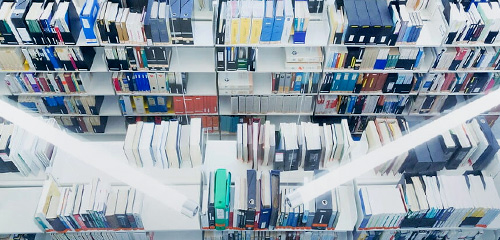 EDF communicates on its commitments and reports to its stakeholders on the implementation of its action plans.
EDF communicates on its commitments and reports to its stakeholders on the implementation of its action plans.
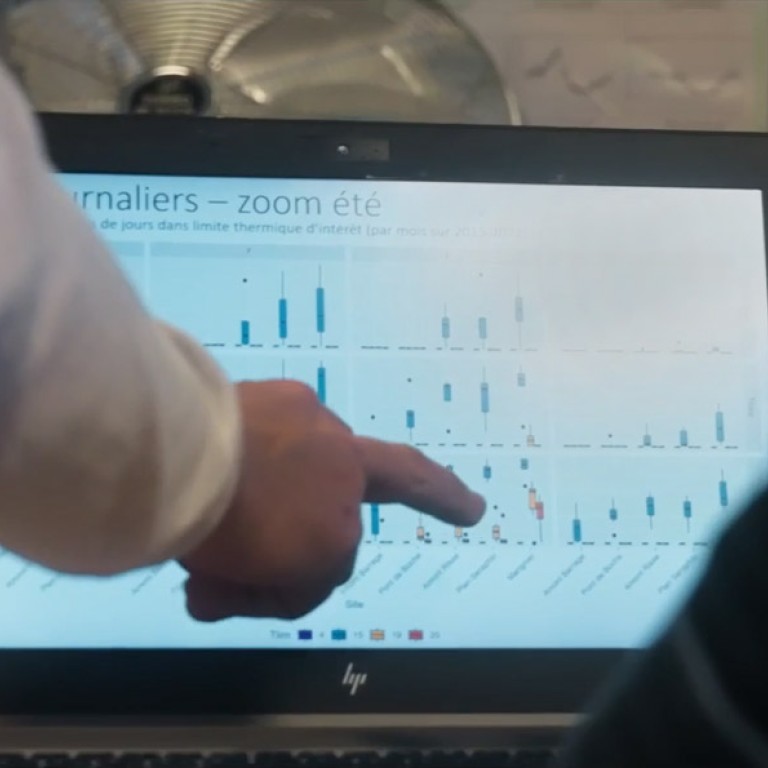
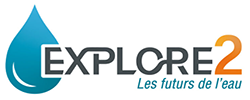
The Explore 2 project, the future of water
Alongside other public research players (Météo-France, INRAE, etc.), EDF took part in the national EXPLORE 2 project, which studied the evolution of water resources by 2100.
The EDF Group's CSR policy commitment on water
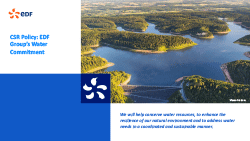 As a responsible water user and a major historical actor of the freshwater management in France, the EDF Group is committed to help conserve water resources, in order to enhance the resilience of natural environment and to address water needs in a concerted and sustainable manner.
As a responsible water user and a major historical actor of the freshwater management in France, the EDF Group is committed to help conserve water resources, in order to enhance the resilience of natural environment and to address water needs in a concerted and sustainable manner.-
Download the document PDF - 1.12 MB
Publications & initiatives
You can consult the following publications and initiatives.


